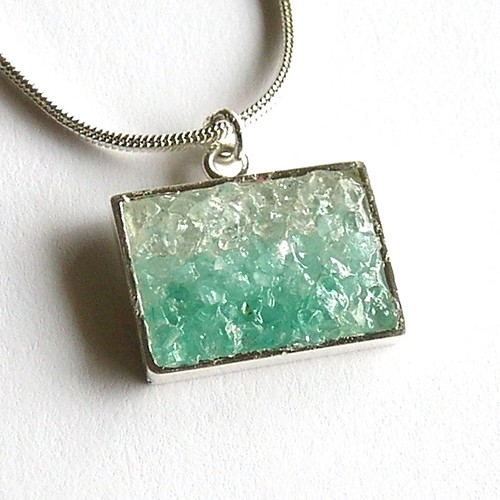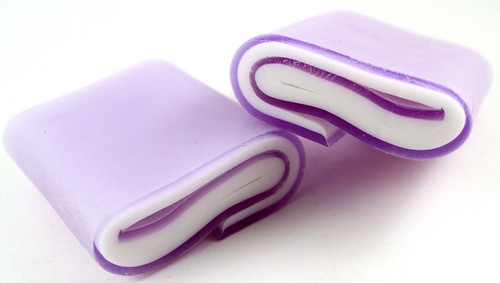Two part presentation by Megan Auman of Crafting an MBA on how to find and develop your niche.
Part 1:
Part 2:
Monday, March 28, 2011
Friday, March 25, 2011
Weekly Inspiration
Submit your photos for consideration as a Weekly Inspiration by adding them to the Flickr Group.
Tuesday, March 22, 2011
Handling Copyright Issues
 Snarky craft blog Regretsy recently targeted a seller violating copyright. This post discusses the response they got from Etsy and the frustration caused by it. The thing is that Etsy acted entirely how they have to in response to unrelated 3rd parties reporting copyright violation. In this post I'm going to discuss how to handle when you discover someone ripping off your work.
Snarky craft blog Regretsy recently targeted a seller violating copyright. This post discusses the response they got from Etsy and the frustration caused by it. The thing is that Etsy acted entirely how they have to in response to unrelated 3rd parties reporting copyright violation. In this post I'm going to discuss how to handle when you discover someone ripping off your work.Why Etsy responded the way they did.
Picture this scenario: You are an Etsy seller with an original design. Someone else has ripped off your work. A person unfamiliar with either of you sees both and decides that YOU were the one that did the ripping off. They report you to Etsy. Now if Etsy considered this proof enough to take someone's items down you would be pretty upset wouldn't you? Of course you would. Copyright violation is a serious legal matter and if Etsy were to act on it without proof provided by the copyright holder they would be in a shaky legal position. So Etsy requires the copyright holder or their lawyer to notify them with proof that their copyright has been violated.
What should you do when someone has copied you?
Remember I am not a lawyer, this is not official legal advice just my personal opinions on what your options are. If you feel like you need a lawyer, by all means consult one, it's probably worth the money if the infringement is serious enough.
You have several options when you discover someone has copied your work. Your first step should be to contact the person copying you and ask them politely to remove the infringing items (a cease and desist letter). Make sure you give them examples of where you believe they have copied you. Many people don't understand copyright and don't realize they are breaking the law. Once contacted many people will remove the infringing items.
If after you have made a polite request and it's been ignored or rejected you're going to have to do more work to solve the problem.
In cases where a seller on an online venue is selling infringing items you should contact the site's legal department. Make sure you have documentation that shows how long you have been making or selling your items to back up your claim. An example would be records of when your first version of the item was listed or sold. Unfortunately if this is a very unethical person they may just start selling somewhere else, if this happens you could keep going after them on every website they try to sell on and make it too much trouble for them to continue selling the infringing items or get a lawyer involved to take it to the next level legally (usually suing them for infringement).
In cases where someone has used a digital copy of your photos, artwork, writing, or other creations without permission you should send a DMCA takedown notice to their hosting company or ISP (use Whois domain lookup). By law service providers must take down potentially infringing material reported to them by a DMCA takedown notice (there is a response process if the person believes they aren't infringing but that's a different subject).
If your items are being copied by a company with their own website or store things get harder. If they have ignored or rejected a cease and desist letter you really have no choice but to consult a lawyer about your options and possibly file suit.
If for any reason you feel like your business has been harmed or that the infringement has cost you money you can try to collect damages. This absolutely requires a lawyer familiar with copyright law.
When is work not covered by copyright?
Unfortunately not everything crafters do is covered by copyright. From the US Copyright Office website:
Copyright protects “original works of authorship” that are fixed in a tangible form of expression. The fixation need not be directly perceptible so long as it may be communicated with the aid of a machine or device. Copyrightable works include the following categories:The way this is explained in a legal guide I have on craft work is that functional items are not covered by copyright only their artistic elements if they can be viewed separately from the functionality. So say you designed a fabric print and then used it to make a dress. Clothing is a functional item and the function can't be separated from the design so the dress isn't covered by copyright. On the other hand the fabric print is considered a graphic work which can be viewed separately from the function of the clothing therefore it is given copyright protection. This is one of the reasons fashion knockoffs are so easy to come by and so hard for fashion designers to put a stop to unless the fabric or other artistic element has been copied (or it infringes on trademark but that's an entirely different legal issue). Another example would be soap molded to look like a cat, the soap is functional but the sculptural form of the cat is artistic. Photos of your crafts are separate works from the craft itself and are covered by copyright of their own regardless of whether your craft item is able to be copyrighted. The website listed below for the US Copyright Office has more information on what qualifies for copyright protection. If you are uncertain whether your work qualifies for copyright protection and the website for the US Copyright Office doesn't help you should absolutely consult a copyright lawyer.
1. literary works
2. musical works, including any accompanying words
3. dramatic works, including any accompanying music
4. pantomimes and choreographic works
5. pictorial, graphic, and sculptural works
6. motion pictures and other audiovisual works
7. sound recordings
8. architectural works
These categories should be viewed broadly. For example, computer programs and most “compilations” may be registered as “literary works”; maps and architectural plans may be registered as “pictorial, graphic, and sculptural works.”
Copyright Resources
US Copyright Office
Etsy Copyright Policy
Digital Millenium Copyright Act
Sample DMCA Takedown Notice
Whois Domain Lookup
US Patent and Trademark Office
Note: After I started writing this post I was informed of an Etsy seller who had copied my designs. I contacted them via convo about it and they promptly apologized and removed the infringing items.
Friday, March 4, 2011
Weekly Inspiration
Submit your photos for consideration as a Weekly Inspiration by adding them to the Flickr Group.
Subscribe to:
Posts (Atom)

